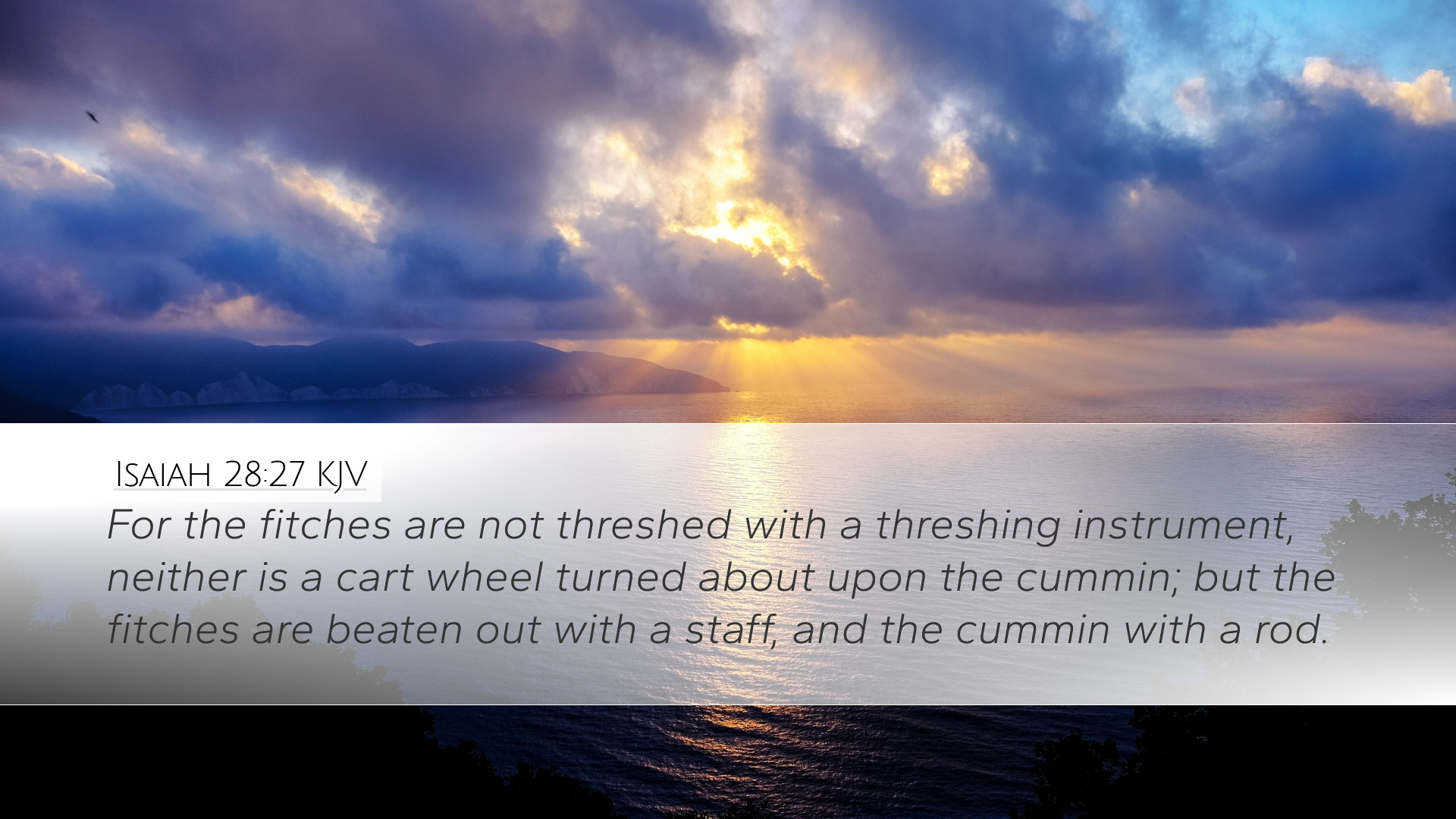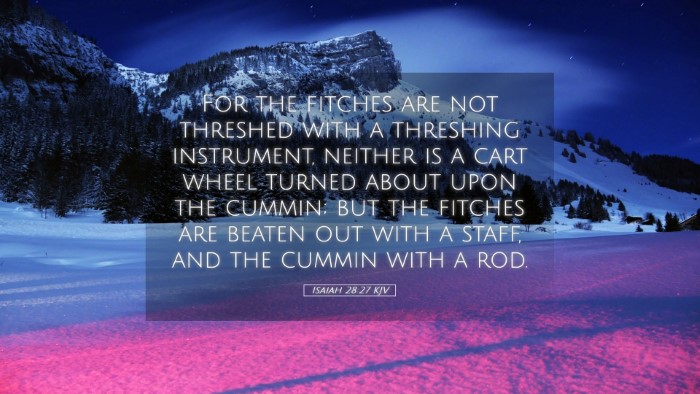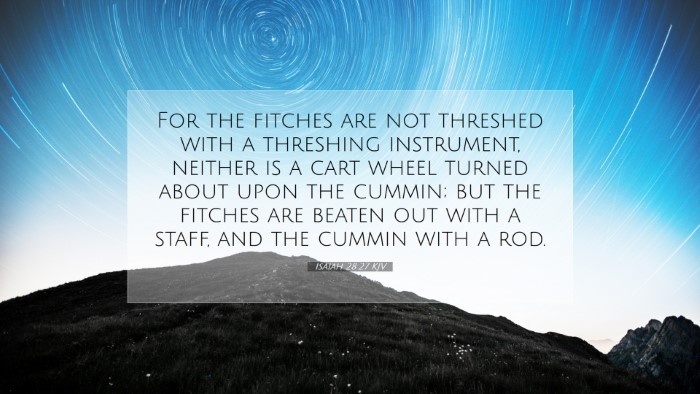Commentary on Isaiah 28:27
Text of Isaiah 28:27 (KJV): "For the fitches are not threshed with a threshing instrument, neither is a cartwheel turned about upon the cumin; but the fitches are beaten out with a staff, and the cumin with a rod."
Introduction
This verse from the prophet Isaiah employs agricultural imagery to convey profound spiritual truths and insights about God's methods and ways of dealing with His creation. By contrasting different agricultural practices, Isaiah illustrates the idea that God's methods may not always align with human expectations. This commentary synthesizes insights from various public domain sources, including Matthew Henry, Albert Barnes, and Adam Clarke, to provide a comprehensive understanding of this verse.
Contextual Background
Isaiah 28 is part of a section in the book that addresses the judgment coming upon Israel due to their rebellion and reliance on their own wisdom rather than God's guidance. The verses preceding Isaiah 28:27 discuss the principles of divine wisdom contrasted to human folly. The imagery of threshing in this verse serves to illustrate God’s precision and fairness in His dealings.
Interpretation of Agricultural Imagery
Distinct Methods for Different Crops
Isaiah illustrates that just as different crops require unique methods of harvesting, so too does God apply tailored approaches for His people and their needs.
- Fitches (or spelt): This grain is likened to individuals who require gentler handling. Matthew Henry points out that the divine dealings with the humble are gentle, underscoring that God does not crush those who are weak and earnest.
- Cumin: Adam Clarke highlights that cumin, being a delicate herb, also requires care and deliberate handling, signifying that God’s attention to detail is both a nurturing and teaching act.
Theological Reflections
This verse invites theological reflection on the nature of divine guidance and providence. God's approach to leading and disciplining His people often contrasts sharply with human expectations.
- God’s Wisdom: Albert Barnes emphasizes that God's wisdom in dealing with nations and individuals is beyond human understanding. The differing treatments of crops parallel God's unique provisions for different situations and peoples.
- Grace and Sovereignty: The imagery of a staff and rod used in the verse denotes both authority and compassion. It suggests that while God holds ultimate authority, He exercises His sovereignty with gentleness toward His creation.
Pastoral Applications
For pastors and spiritual leaders, Isaiah 28:27 offers essential insights into pastoral care and counseling:
- Understanding Needs: Just as different crops require different harvesting techniques, congregants have varied spiritual needs that require personalized approaches to ministry.
- Gently Restoring: Pastoral care should mirror God's gentleness, as indicated in this verse. Believers struggling with sin or doubt need nurturing guidance instead of harsh judgment.
Conclusion
In Isaiah 28:27, we find a rich tapestry of meaning woven through the agricultural analogy. The truths contained within this verse invite deeper reflection on God’s personalized dealings with His people, emphasizing both His sovereign will and His tender mercy. This commentary serves as a reminder of the necessity for wisdom and sensitivity in ministry as we seek to follow the example set forth by our Lord.


